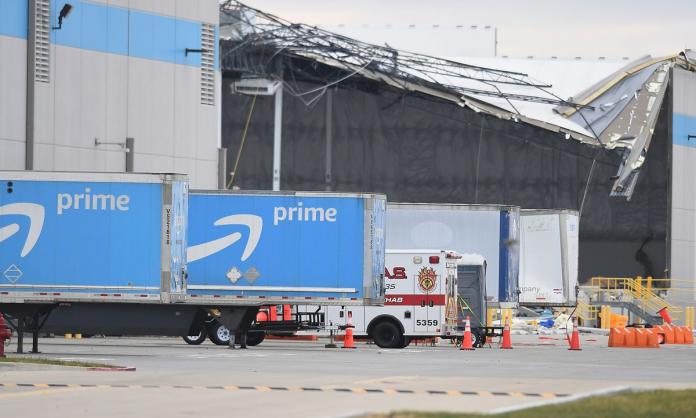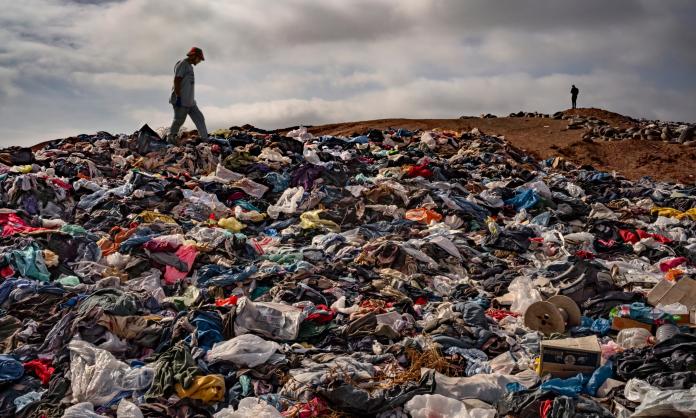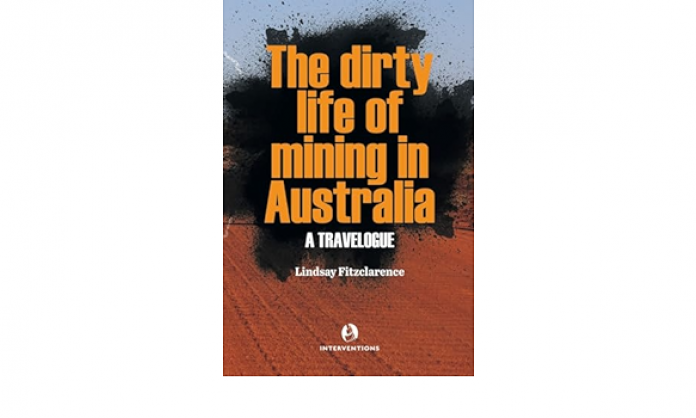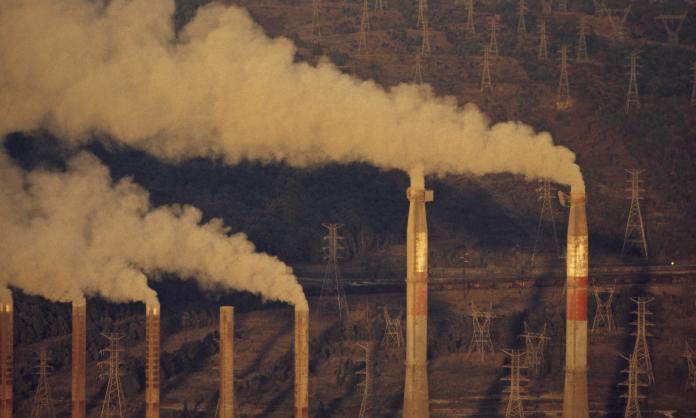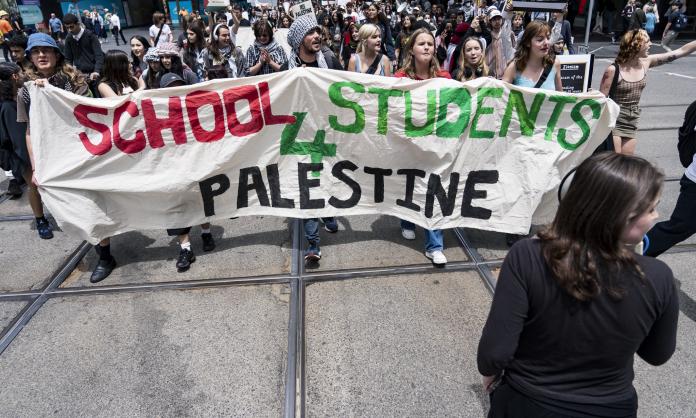“Amazon won’t let us leave”—those were the last words Larry Virden sent, via text message, to his partner. That night, on Friday 10 December, a tornado ripped through the warehouse in Illinois where Virden was working, killing him and five co-workers. Their lives were sacrificed so that Amazon could make a few more dollars during peak delivery season.
More than half an hour passed between the issuance of a tornado warning by the US National Weather Service via text message and the moment the tornado landed in the parking lot outside the warehouse. While there are two emergency shelters at the warehouse, many workers were forced to keep working, and rushed into bathrooms and hallways at the last moment. Contributing to the disaster, most of those onsite weren’t carrying their mobile phones due to company policy and thus didn’t receive the tornado warning directly. An Amazon worker at a neighbouring facility told Bloomberg, “After these deaths, there is no way in hell I am relying on Amazon to keep me safe”.
After reports had already emerged of the carnage in Illinois, Amazon’s founder, former CEO and current Executive Chairman Jeff Bezos took a moment to post on social media—celebrating the launch of the third crewed flight into space by another of his ventures, Blue Origin. It would take several more hours before Bezos’ public relations team bothered to offer condolences to the families of those killed. Amazon CEO Dave Clark merely offered his “thoughts and prayers”.
This callous disregard for workers’ lives isn’t limited to Amazon, but is a systemic feature of capitalism. On the same night, a tornado ripped through western Kentucky, killing more than 90 people—including at least eight workers at a candle factory in the town of Mayfield. Another eight workers are still missing under the twisted metal and debris. Among the workers who survived, several told NBC News that supervisors had threatened to fire anyone who left before the tornado hit.
At least fifteen of the more than 110 workers at the candle factory did request to leave, grouping together to make the case, but they were rebuffed each time. Company executives denied this, but workers were adamant. “‘If you leave, you’re more than likely to be fired’. I heard that with my own ears”, McKayla Emery told NBC. Emery was trapped under the rubble for over six hours and remains in a hospital bed with swollen, immobile legs and chemical burns from candle wax across her body.
These tragedies highlight multiple interlocking problems arising from a system that prioritises profits over human life. Casualised workforces, attacks on conditions, competitive pressures, supply chain issues, and, of course, climate change are all problems that can be tied to the devastation in Kentucky and Illinois.
The weather pattern that generated storms in the US Midwest that night isn’t common in December. “The heat and humidity across the South was pretty uncharacteristic for this time of year,” Victor Gensini, an associate professor of atmospheric sciences at Northern Illinois University told NBC News. “I remember waking up, looking at the weather maps and saying, ‘Geez, this looks a lot more like late April than mid-December.’” Combined with La Niña conditions, the unseasonable warmth increased the potential severity of storms in the region.
Amazon is the second largest employer in the US. Earlier this year—in a race to meet increased demand and avoid supply chain disruptions—the company rushed to build more warehouses and pump-up its delivery capabilities. Of the 190 workers at the Amazon warehouse hit by the tornado, only seven were full-time employees. Using so many contractors helps Amazon limit its liability when disasters strike. It also makes it more difficult for workers to organise and fight for better wages and conditions.
While a much smaller company, the operators of the candle factory—Mayfield Consumer Products—have a reprehensible record of their own. In pursuit of cheap, more easily exploitable labour, the company has recruited economically-disadvantaged workers from Puerto Rico and opened at least two contracts with nearby jails to bring in incarcerated workers. Competition compels every company, large and small, to drive down wages and conditions in pursuit of profit.
The workers who approached the bosses at Mayfield in small groups knew they couldn’t do so individually—unfortunately, even that wasn’t enough. While US federal law protects the right to refuse to work in dangerous conditions, this right is meaningless in a moment of danger without the unified demand of the majority of workers onsite. The farm workers who fought for new protections in the midst of the US west coast heatwave this summer can testify to that.
Investigations by the US Occupational Safety and Health Administration are now underway at both worksites. Without the backing of a militant and organised workforce, however, these investigations won’t bring justice for the workers murdered by their employers at Mayfield and Amazon. Real justice can only be won through class struggle.




